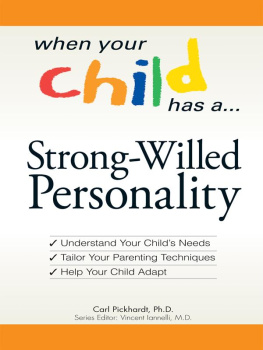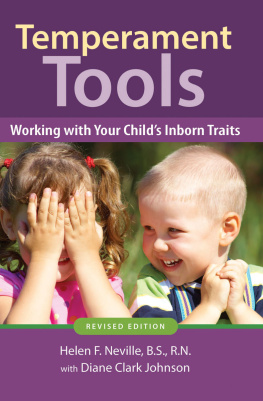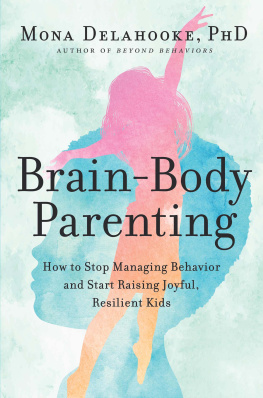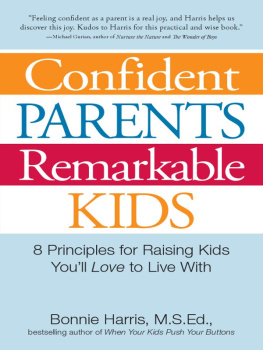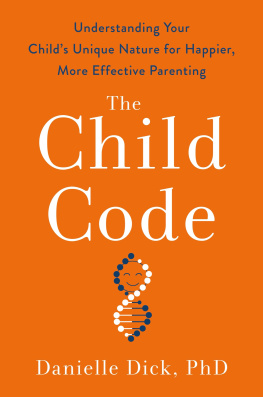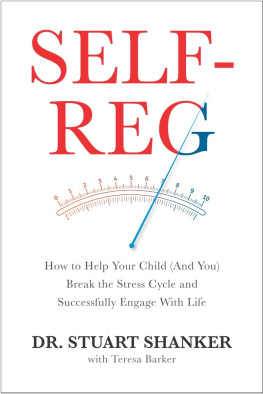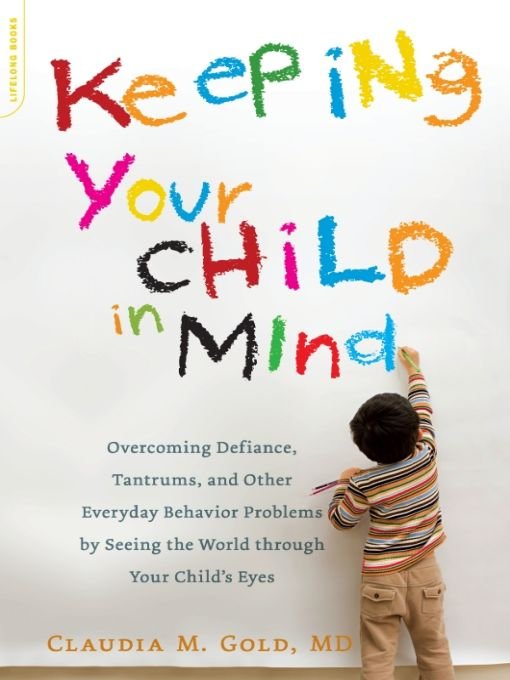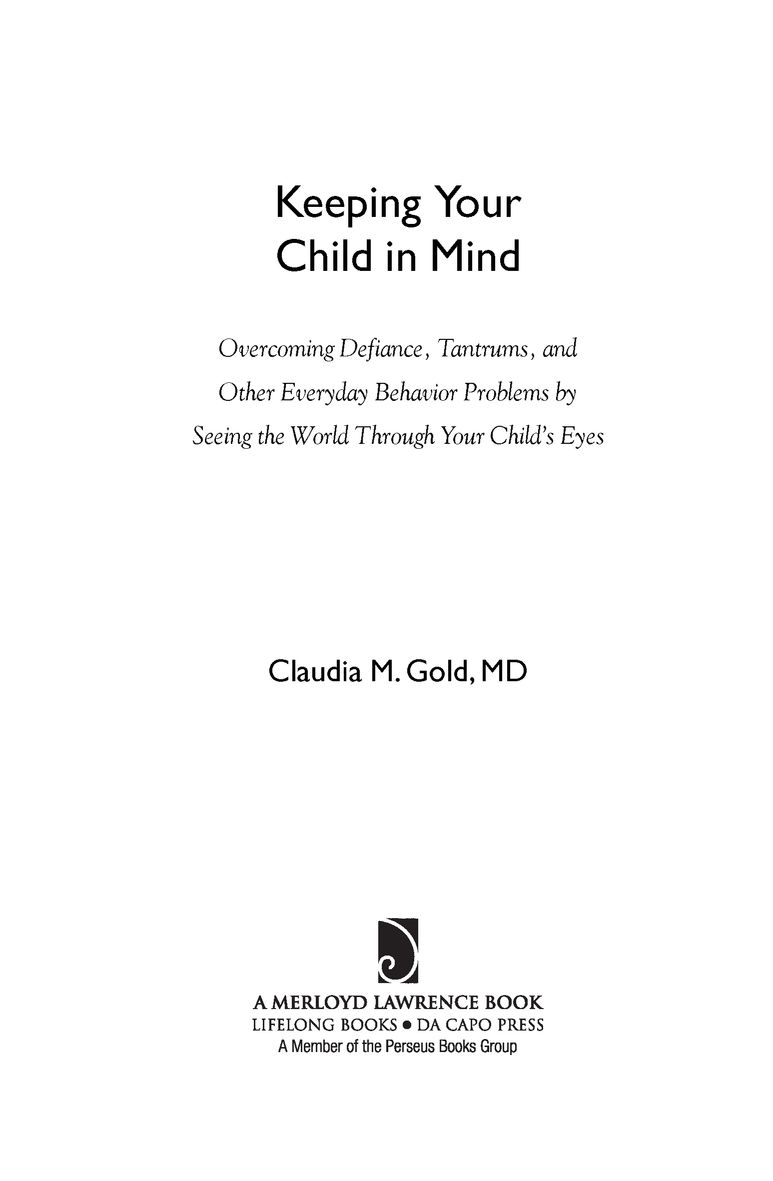Table of Contents
For Joe, Suzanne, Hannah, and Eli
ACKNOWLEDGMENTS
I would like to thank the following people for their critical role in bringing this book into existence:
My agent, Lisa Adams, who, with her kind and gentle manner, firmly and brilliantly led my book in the right direction
My editor, Merloyd Lawrence, who always understood exactly what I was trying to say, and with her magnificent editing helped me to say it ever more clearly
Peter Fonagy, Linda Mayes, David Reiss, and Arietta Slade, who offered inspiration as well as generous guidance and encouragement
Don MacGillis, editor at the Boston Globe, who first published my work and was instrumental in building my platform
Gale Pryor, great friend, high school classmate, and freelance editor, who believed in my project from the start
M. Gerard Fromm, Winnicott scholar, who taught me the true meaning of the phrase the holding environment
My parents, Henry and Edith Meininger, who shared with me a passion for writing and for caring for children
My husband, Joe, who works hard to earn a living so I can pursue these passions, and who always makes me laugh
And last but not least, my children, who are not only my greatest joy, but also my greatest teachers.
ITS NOT ABOUT THE SOUP: HOLDING YOUR CHILD IN MIND
Daniels mother Karen left a desperate message on the voice mail at my behavioral pediatrics practice. There must be something wrong with him. You need to tell me what to do to make him listen! The three of us met in my office two days later. The story of a terrible scene burst out of Karen, a painful drama that ended with five-year-old Daniel alone in his room refusing dinner after two hours of nonstop screaming. What I want to hear from both of you is how you got to this point, I said. Karen was agitated, and in the face of his mothers anger, Daniel withdrew into his play, but as I worked with them to slow things down, the following story emerged. Daniel and his mother took turns telling the story from their own points of view.

It began after five oclock on a day that Karen had been gone at her new job. Three months earlier, she had returned to work full time. Daniel, his mother, and his two-year-old sister Hailey had had a nice outing to the grocery store to shop for dinner. They had all agreed that they wanted hamburgers. Because the kids had been so well behaved, Karen offered to go to the store to get a special toy for Daniel to replace one that had recently broken. In his excitement, Daniel ran ahead in the parking lot. It was dark and Karen yelled to him to stay close, which he did. Unfortunately the store did not have the toy they were looking for, but Karen agreed to try a different store. They never made it to the second store. Once again, Daniel ran ahead, but this time he did not respond to his mothers call. Karen had to scream at him to stop running. Mom was worried about you, I said. It was dark and you could have been hurt. When they finally were back in the car and buckled in, Karen, feeling exhausted and overwhelmed, said she was not going to another store. Daniel then hit Hailey, who started to cry. I asked Daniel how he had felt at that moment. He was very clear. I was sad. Were you angry? I asked. He looked at his mother. Was I angry? I said I wanted to know from him. No, he said. I was sad.
What had happened next didnt make sense. Karen felt at the end of her rope. Daniel and Hailey were both crying. Then Daniel had said, I want soup. This statement had the unfortunate effect of taking the conflict to a whole new level. Daniel and his mother went head-to-head over the dinner choice, and the battle continued for the next two hours, ending with Karen still in a rage and Daniel alone in his room without dinner. Why, I wondered aloud with them in my office, would Daniel take a situation that was already pretty bad, and then make it so much worse? None of us knew the answer. I wonder, I said, if the soup was Daniels way of saying, I feel bad and I need to be comforted. I told them that I had this idea because Daniel had told us that he felt sad, not angry.
With this suggestion the conversation took a new direction, as Karen began to tell me about an episode of depression she had experienced six months earlier. She had been very irritable and short with her children, and she recalled Daniel asking, Why is Mommy sad? As she thought about it, Karen realized that Daniels difficult behavior really started then, and got worse only when she returned to work full time, although she herself now felt better. Perhaps, I wondered out loud, its taken Daniel longer than you to recover.
Should I have let him have the soup? Karen asked. Its not about the soup, I replied. In my opinion, there was no right answer. Either way could have been OK, and each choice had its pluses and minuses, as is true about most of the minuteto-minute decisions we make as parents. What was important, however, was to reflect upon the meaning of Daniels difficult behavior, to label his feelings and talk about them. My hope was that by giving Karen an opportunity to tell her story, she would learn how to regulate her own distress in future hot spots when things began to unravel. If she, in turn, could help Daniel reflect on what was happening, he would learn to say not, I want soup but rather, I feel sad that youre angry with me or I miss you when youre away.
A Childs Deepest Need
Being understood by a person we love is one of our most powerful yearnings, for adults and children alike. The need for understanding is part of what makes us human. When our feelings are validated, we know that were not alone. For a young child, this understanding helps develop his mind and sense of himself. When the people who care for him can reflect back his experience, he learns to recognize and manage his emotions, think more clearly, and adapt to his complex social world. When families come to see me in my pediatric practice for behavior problems, both parents and children feel estranged and out of control. They are disconnected, angry, and sad. I help them recognize each other. Meaningful change happens when we share these moments of reconnection.
My approach and the ideas behind it have grown out of the unique experience of working on the front lines with children and families in a busy small-town pediatric practice while simultaneously studying contemporary developmental theory and research as a scholar with the Berkshire Psychoanalytic Institute. This research has had direct application to my work and has helped me to help families in dramatic and meaningful ways. I see day after day that if a parent is given the space and time to think about her childs experience, it has a significant and immediate effect on the childs behavior. Behavior problems are actually symptoms of disruptions in relationships. My approach can be applied to a wide range of behavioral issues, including, but not limited to, excessive crying, sleep problems, and explosive behavior. As relationships are healed, behavior improves. As children learn to manage strong emotions, parents have an increased feeling of competence. A positive cycle of interaction is set in place. The rapidly moving train of development gets back on track.


